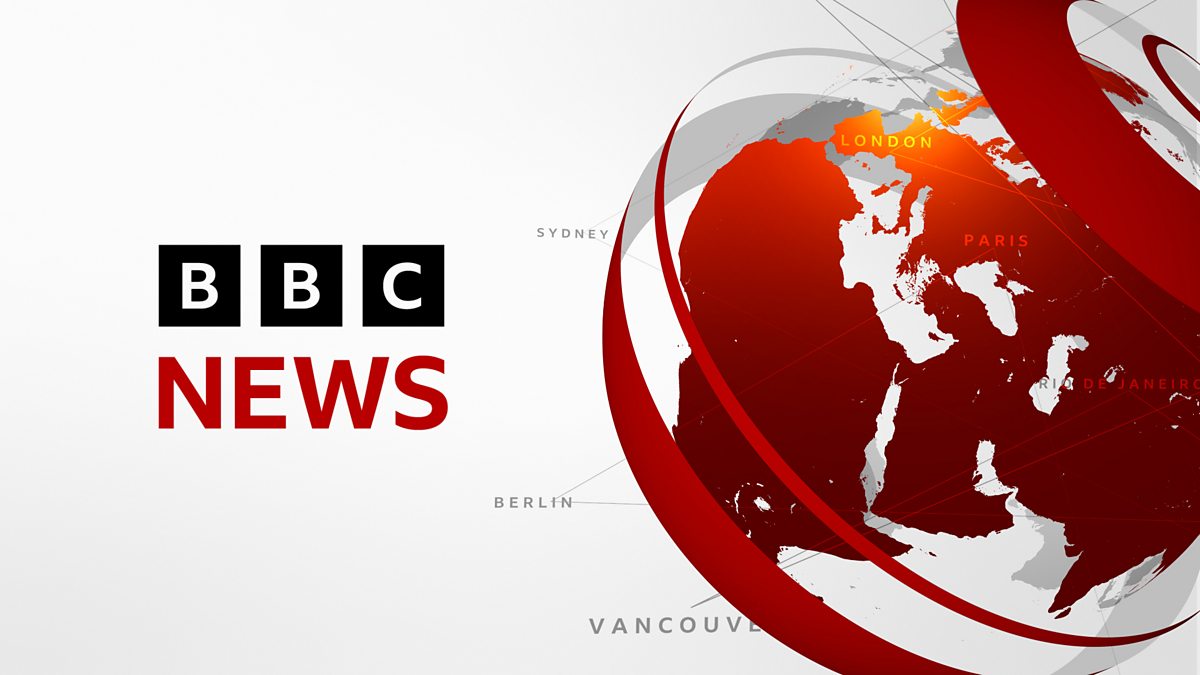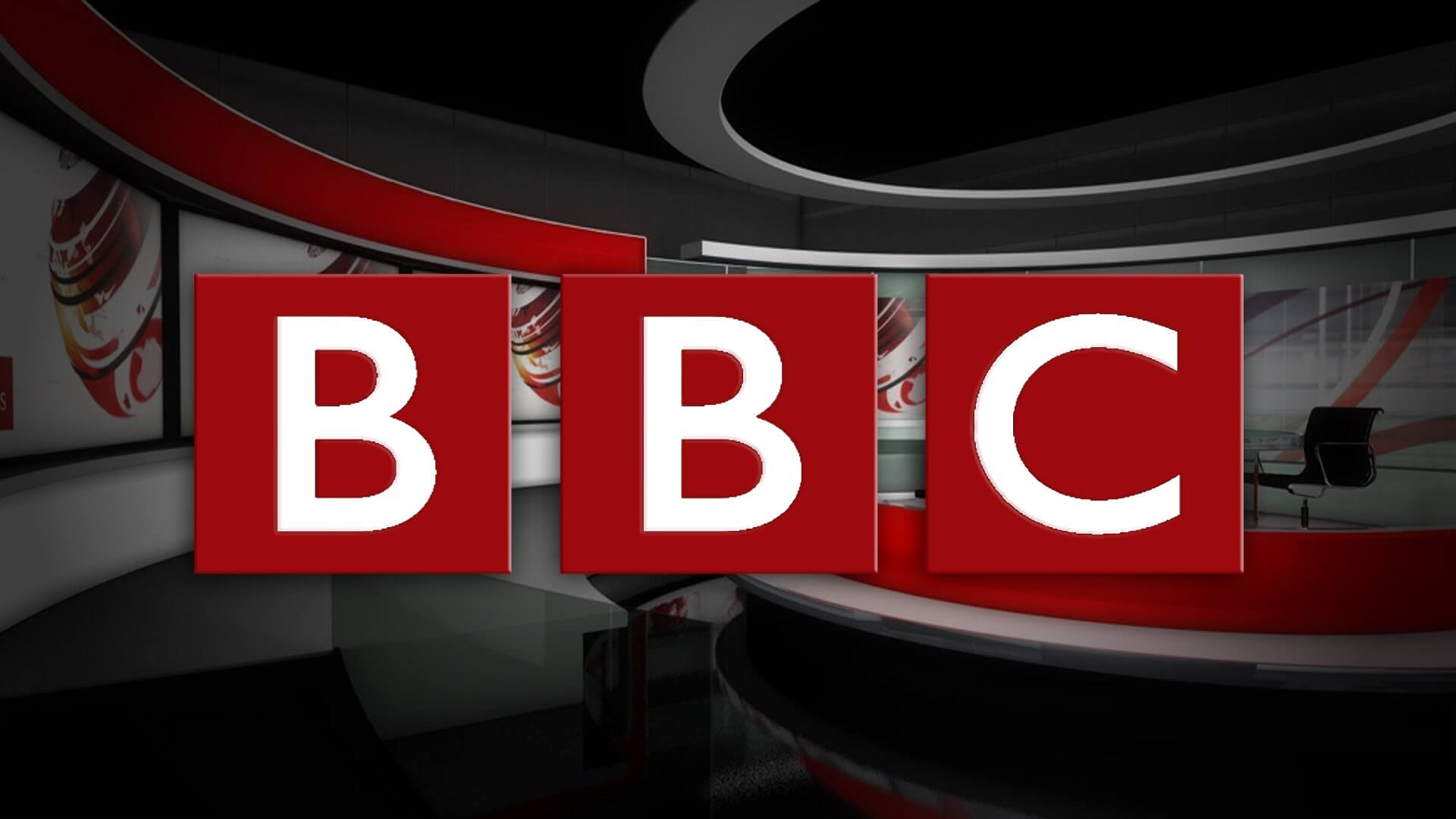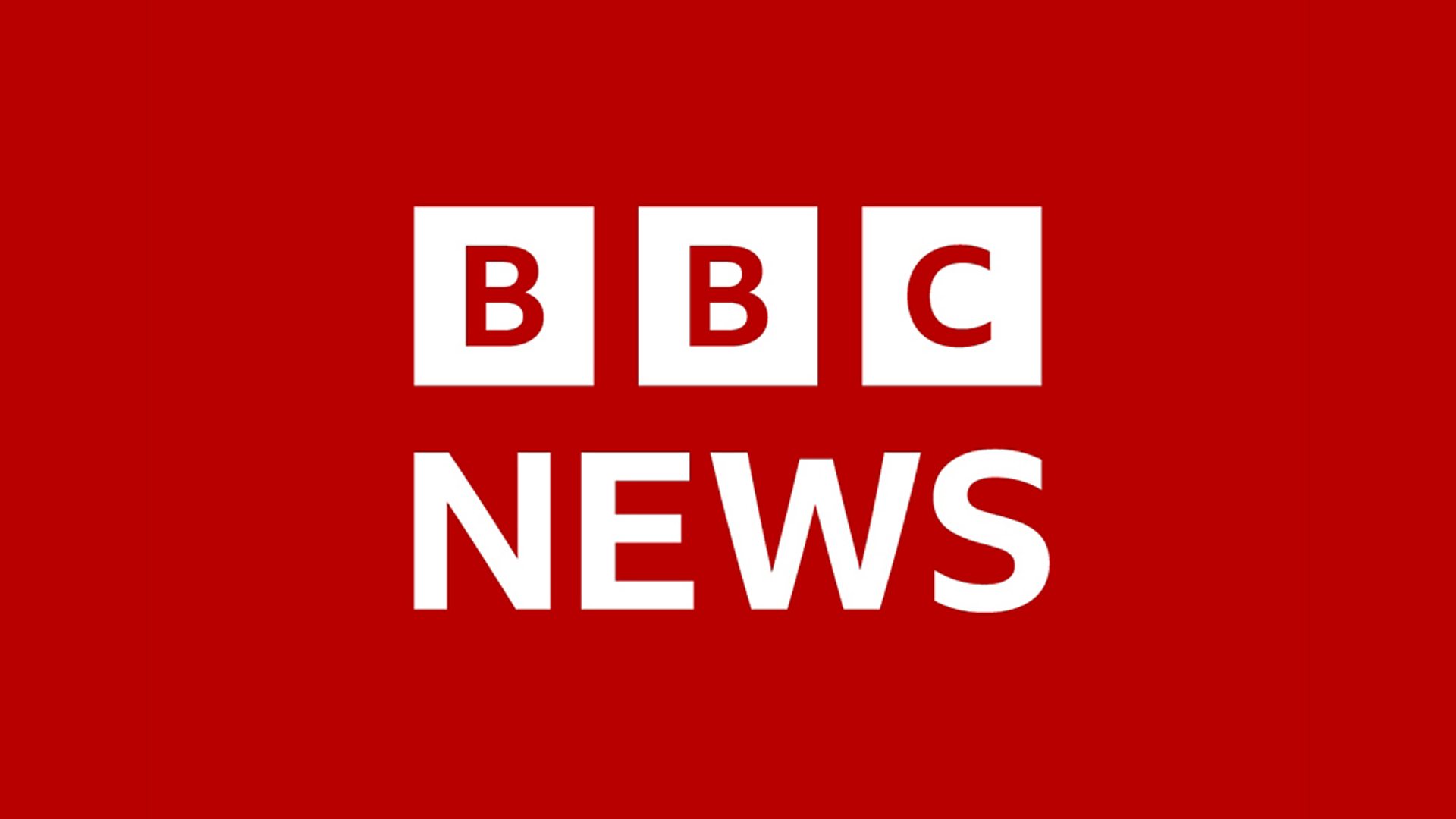BBC Femboy - Exploring Digital Content Streams
When people spend time online, they look for all sorts of things, honestly. Some searches are pretty straightforward, like finding out the latest news or maybe a recipe for dinner. Other times, people are looking for something a bit more specific, perhaps something that speaks to a very particular interest or curiosity. It's almost as if the internet has become this huge library where every single book, no matter how niche, has its own little spot. So, you might find yourself typing in something that seems quite unique, and then watching what the search results bring back.
This whole process of searching and discovering content can actually be quite interesting, you know, because it shows how varied human interests truly are. A lot of folks might be drawn to very mainstream sources for information, like the British Broadcasting Corporation, or BBC, which has been around for a very long time and is generally known for its news and factual programs. Yet, even with such a well-known entity, how people interact with it, or what they look for in relation to it, can really differ quite a bit. It is that kind of interaction we are going to talk about here.
It's pretty clear that when you put together a big, widely recognized name like the BBC with a term that represents a very specific online community, like "femboy," the combination can lead to some rather unexpected search outcomes. This isn't really about the BBC itself creating that specific kind of content, but more about how search engines work and how various keywords can connect in the vast digital space. It shows us, in a way, just how diverse the online world has become, and how different kinds of content, from global news to very particular interests, all exist side-by-side, apparently.
- Heat Leager
- Sebastian Stan Jennifer Morrison
- Caleb Tiktok Death
- Elon Musk Yacht Photo
- Burt Reynolds Playgirl Pose
Table of Contents
- What Makes People Look for Specific Content Online?
- How Does BBC's Reach Affect What People Find?
- The BBC's Global Footprint and Varied Offerings
- Is BBC News a Good Tool for Language Practice?
- What About Other News Sources for Language Learners?
- Understanding Media Consumption and Diverse Interests
- Considering Different Media Standards and Audiences
- A Look at Online Communities and Content Creation
What Makes People Look for Specific Content Online?
People look for all sorts of things online, and the reasons are as varied as the people themselves. Some might be trying to learn something new, perhaps about a topic for a school paper, or maybe a hobby they are getting into. Others are just looking for entertainment, or a way to pass the time, like watching a show or playing a game. Then there are those who are seeking out information that speaks to their unique personal interests, things that might not be talked about on mainstream television or in the daily newspaper. It's pretty much a reflection of everyone's individual curiosities, you know.
When someone types a phrase like "bbc femboy" into a search bar, it's a bit like they are casting a wide net into the internet ocean. They might be curious about how a mainstream organization, such as the BBC, might intersect with very specific subcultures or interests. It's not always about finding direct content from the BBC itself that fits that exact description, but rather seeing what the algorithms connect. This can lead to a mix of results, some perhaps related to general discussions about media representation, and others that are quite different, simply because the internet is so vast and interconnected, in a way.
This kind of search behavior really highlights how different people approach information gathering online. Some are very precise, looking for something specific, while others are more exploratory, just seeing what comes up when they combine certain words. It shows how the digital world allows for the expression of incredibly diverse preferences, and how even well-established names like the BBC can become part of a much broader, and sometimes unexpected, conversation. So, it's pretty fascinating to observe these patterns of searching and discovering, especially when it involves something that seems a bit out of the ordinary, actually.
- What Does Johnny Tillotson Look Like Now
- 90s Brad And Jen
- Roger Federer Children 2024
- Aurora Culpo Plastic Surgery
- David Smith Ex Husband Of Susan Smith
How Does BBC's Reach Affect What People Find?
The BBC, being a global news and media organization, has an incredibly wide reach, which means its name pops up in all sorts of places online. This broad presence can actually affect what people find when they do a search, even for something quite specific. Because the BBC covers so many topics – from world events to cultural happenings, and even things like drama series – its digital footprint is just enormous. So, when someone types in a search query that includes "BBC," it's almost guaranteed to bring up a lot of results, many of which are related to its official content, but some might be from other sources that simply mention the BBC in some context, too.
This extensive digital presence means that the BBC's name can appear alongside discussions or content that it has no direct connection to. For instance, if a specific community online is talking about media representation, or perhaps a particular type of aesthetic, and they happen to mention a BBC show or character in passing, that link could then show up in search results. It’s not that the BBC is creating content for every single niche interest out there, but rather that its sheer volume of content and mentions across the internet means it can become tangentially related to a very wide array of topics, apparently.
So, when you consider a search like "bbc femboy," the BBC's broad influence plays a part in the results you see. It might not be official BBC content, but rather discussions on forums, fan sites, or other platforms where people are talking about various topics and happen to bring up the BBC in some way. This is just how the internet works, really; connections are made through keywords, and a widely referenced entity like the BBC will naturally be linked to many different conversations, some very mainstream, and others quite specialized. It’s pretty much a testament to how interconnected our online world has become, you know.
The BBC's Global Footprint and Varied Offerings
The BBC is known all over the world, and it has a pretty big presence in many countries, not just the UK. It offers news and analysis on a huge range of subjects, like what's happening in politics, how economies are doing, and different cultural things. This means that a lot of people rely on the BBC for their daily dose of what's going on globally. Its World Service, for instance, broadcasts in many languages, which helps it reach different groups of people and give them information that's both current and, generally, seen as trustworthy. It's a bit like a big, reliable information hub for many, in a way.
Beyond just news, the BBC also creates a lot of other content. They make TV shows, documentaries, and radio programs that cover everything from history to science, and even drama. Think about their versions of classic stories, like "Les Misérables" or "War and Peace"; these are pretty well-regarded and show the depth of their production capabilities. This wide variety of content means that the BBC appeals to a very broad audience, people with all sorts of different tastes and interests. So, it's not just about breaking news, but also about cultural enrichment and storytelling, too.
Because of this extensive range of offerings, the BBC has built a reputation for being a significant source of information and entertainment. Whether you're looking for an in-depth report on an international event or a well-produced period drama, chances are the BBC has something that fits. This widespread availability and the quality of its productions contribute to its global standing, making it a name that many people recognize and often turn to when they want to stay informed or simply enjoy some good programming. It's pretty much a household name in many parts of the world, honestly.
Is BBC News a Good Tool for Language Practice?
Using news websites, like those from the BBC, can actually be a very good way to practice a new language. When you read articles or listen to broadcasts in another language, you get to see how words are used in real-world situations. Someone might go to the BBC's website, for instance, open up a news story, and then really look at every verb, asking themselves about the tense and why that specific tense was chosen. This kind of detailed examination can be slow at first, maybe only getting through a few verbs in a couple of hours, but it helps a lot with truly understanding the language, you know.
The BBC's Chinese language service, for example, is made specifically for Chinese speakers, and it's pretty much designed to be easy for them to follow. While some might say these foreign language versions have a bit of a promotional feel, if you have a good sense of how things work and can tell the difference between facts and opinions, looking at them can actually be quite helpful for your brain. It helps you see different viewpoints and how language is used to convey them, which is a really useful skill when you're learning, apparently.
The advantage of using a source like BBC News for language practice is that the content is generally well-written and covers current events, which means you're learning relevant vocabulary. You're also getting exposure to natural sentence structures and common phrases that people use every day. So, it's not just about memorizing words from a list, but about seeing them in action, which can make the learning process much more engaging and effective. It's a pretty practical approach to getting better at a language, if you ask me.
What About Other News Sources for Language Learners?
Besides the BBC, there are other news sources that can be really helpful for people learning a language. For instance, CNN offers international news along with reports from inside the United States, which gives you a different perspective and vocabulary set. The New York Times is known for its high-quality reporting and very detailed analysis, which can be great for advanced learners who want to dig deeper into complex topics. These sources, like your typical English-language news outlets, are generally seen as pretty reliable for current events, too.
Then there are sources like Xinhua News Agency, which provides news from China. While it's a Chinese state-run media outlet, and therefore has a specific viewpoint, it can still be a valuable resource for language learners, especially those focusing on Chinese. It gives you a chance to see how news is presented within a different cultural and political framework, and it's useful for understanding the nuances of the language as it's used in official contexts. It's about getting a well-rounded view, in a way, even if you are just looking for language practice, you know.
The key with any of these sources, whether it's the BBC, CNN, The New York Times, or Xinhua, is to approach them with a bit of critical thinking. Each one has its own style and its own way of looking at the world, which is perfectly fine. For language learning, the benefit comes from the exposure to varied vocabulary and sentence structures, and from the opportunity to understand how different media outlets communicate information. So, it's pretty much about picking what works best for your learning style and what kind of content interests you, honestly.
Understanding Media Consumption and Diverse Interests
How people consume media these days is really varied, and it's pretty much driven by their personal interests. Some people stick to very traditional news channels, while others spend a lot of time on social media or looking for very specific kinds of content online. This diversity in what people look for means that media organizations, even big ones like the BBC, exist within a much larger ecosystem of information and entertainment. It's not just about what the media puts out, but also about what the audience actively seeks out, too.
When we talk about terms like "bbc femboy," it highlights how different interests, even niche ones, intersect with mainstream platforms in the digital space. People are constantly searching for content that resonates with them, whether it's related to a hobby, a community they belong to, or a particular aesthetic they appreciate. The internet makes it incredibly easy to find these specific things, and sometimes, a search term might combine elements from very different areas, leading to a mix of results that reflect this broad online landscape, apparently.
This whole idea of diverse media consumption also means that people are exposed to a lot of different kinds of information, some of which might be official news, and some might be user-generated content from various online communities. It really shows how individual preferences shape what we see and interact with every day. So, it's pretty fascinating to see how these varied interests play out in the digital world, and how they connect to all sorts of media, both established and emerging, you know.
Considering Different Media Standards and Audiences
Different media outlets have different standards, and they also cater to different audiences. A news organization like the BBC, for example, typically adheres to strict journalistic guidelines, focusing on factual reporting and impartiality. Their goal is to provide information that is generally considered accurate and balanced for a very broad public. This is pretty much their core mission, and it shapes everything they produce, too.
However, the internet is full of all sorts of other content creators and platforms, many of which don't operate under the same kind of rules. Some online communities, for instance, create content specifically for very niche audiences, and their standards might be very different from those of a mainstream broadcaster. This is why when you search for a term like "bbc femboy," you might see results that come from very different corners of the internet, each with its own purpose and audience in mind. It's a bit like comparing a public library to a specialized bookstore, in a way.
Understanding these differences is pretty important for anyone consuming media online. It helps you figure out the source of the information, what its purpose might be, and who it's intended for. This kind of awareness allows you to approach content with a more critical eye, rather than just taking everything at face value. So, it's about being a smart consumer of information, recognizing that not all content is created equal, and that different platforms serve very different needs, apparently.
A Look at Online Communities and Content Creation
Online communities are really interesting places where people with shared interests can come together and create all sorts of content. Platforms like Zhihu, which is a big question-and-answer site in China, or even sites where people share erotic pictures and videos, are examples of how individuals contribute to the vast amount of material available online. These communities often have their own unique ways of communicating and their own particular focus, which can be very different from traditional media outlets. It's pretty much a bottom-up approach to content creation, you know.
When a term like "bbc femboy" comes up, it points to the existence of these specific online groups that produce and share content related to very particular interests. These might include discussions, images, or videos that cater to a niche audience. The content found here is generally created by individuals or small groups, rather than large corporations, and it often reflects the specific tastes and preferences of that community. So, it's about people making content for other people who share similar interests, and it can be very diverse, honestly.
This decentralized nature of online content creation means that there's a huge variety of material out there, covering every conceivable topic. While some of it might be very mainstream, a lot of it is quite specialized and caters to very specific subcultures. It highlights how the internet has given everyone a voice and a platform to share what they care about, no matter how unique their interests might be. It’s pretty much a testament to the creative power of individuals and communities online, and how they contribute to the overall digital landscape, too.
This discussion has explored the various ways people search for information online, especially when combining broad terms like "BBC" with more specific interests. We've looked at the BBC's wide global presence and its role as a source for news and cultural content, including how its resources can be used for language learning. We also considered how different media sources cater to diverse audiences and how online communities contribute to the vast array of content available on the internet. It's clear that the digital world is a complex place where all sorts of information and interests intersect.
- Kardashian Star Signs
- Dev Patel Wife Tilda Cobham Hervey
- George Foremans Childrens Names
- Buffy The Vampire Slayer Now
- Gabriel Brown Sister Wives Funeral

BBC News - BBC News Live

How to watch BBC News live online outside UK

BBC News announces savings and digital reinvestment plans